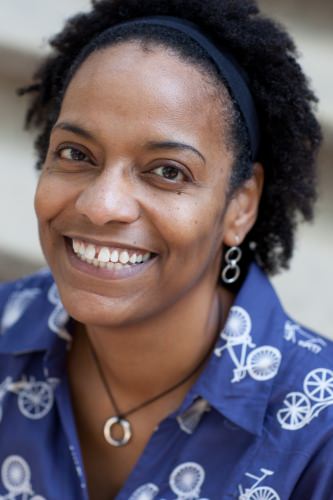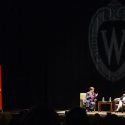UW Law School family law expert selected for research chair
A University of Wisconsin Law School professor will use an innovative research chair to complete a project that examines the civil justice experiences of unrepresented parents in child support cases.
Professor Tonya Brito, a nationally-known family law expert, is the 2016 recipient of the Sheldon B. Lubar Distinguished Research Chair in Law, which is awarded on an annual, competitive basis to fuel productive research and advance faculty excellence at the Law School.
“The project informs the ongoing policy debate about how to best secure civil justice for low-income, unrepresented litigants,” says Brito, the Jefferson Burrus-Bascom Professor of Law. “It asks: How do lawyers matter? And are more limited forms of legal assistance a suitable alternative to attorney representation?”

Tonya Brito
Brito has compared the experiences of poor litigants in Wisconsin, a state that provides attorneys for indigents in civil contempt proceedings, to those in Illinois, where legal assistance measures are designed to help litigants represent themselves. Her team, funded by the National Science Foundation and several other entities, has observed more than 150 hours of child support enforcement hearings; conducted group interviews with 114 judges, family court commissioners, and lawyers; and tracked the cases of 40 fathers for a year to observe how unrepresented parties navigate the court system.
“The data collected allows us to understand how judges, lawyers and other key institutional players understand the mechanisms by which the provision of counsel influences court hearings,” says Brito.
Brito’s research also provides information about the culture of the court system, how judges and lawyers use power in the legal process and their perceptions about low-income litigants. Additionally, the data show how legal assistance shapes litigants’ experience over time, how they use legal assistance and the effectiveness of that assistance.
Law School Dean Margaret Raymond says the project dovetails with the Wisconsin Idea and the Law School’s approach of teaching about law in action.
“Our focus is on examining how the real world interacts with the law to create outcomes for people, and that is what Professor Brito is doing,” Raymond says. “It plays into the Wisconsin Idea, because once we have those answers, we can identify the concrete policy recommendations that improve people’s lives.”
The award will allow Brito the time to begin a book project based on five years of interviews and data-gathering, aimed at understanding how legal representation and assistance make a difference in child support cases.
Brito, a faculty affiliate at the university’s Institute for Research on Poverty, says her interest in the topic expanded after she was asked to write an amicus brief in a 2011 U.S. Supreme Court child support case, Turner v. Rogers, which addressed whether an indigent litigant in South Carolina has a right to a court-appointed attorney in child support contept proceedings.
Her research has allowed her to bring the law to life in the classroom, she says.
“Students want to have a sense of how the legal system actually functions, and this research will provide a detailed look at what goes on in a courtroom setting in cases like this,” Brito says.
Funding for the research chair was provided by Milwaukee business executive and Law School alumnus Sheldon B. Lubar and his wife Marianne S. Lubar.
Brito’s selection allows her a semester’s time to devote her full attention to the project, Raymond says.
“The Lubar Chair encourages my colleagues to put their best work forward and gives them time to deepen their scholarly research,” Raymond says. “It is an extraordinary opportunity to give our most productive, creative scholars the gift of time.”
Tags: employee news, law, Law School



